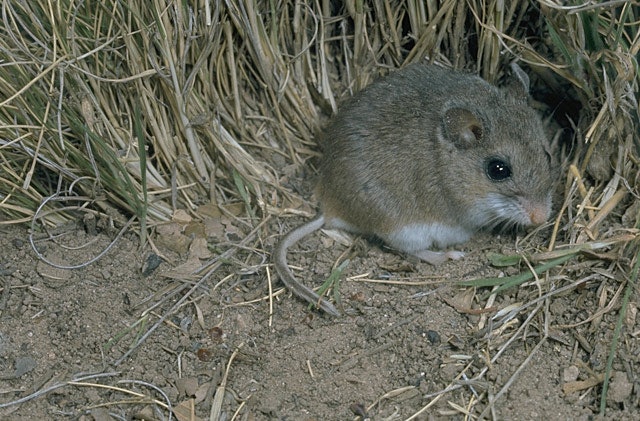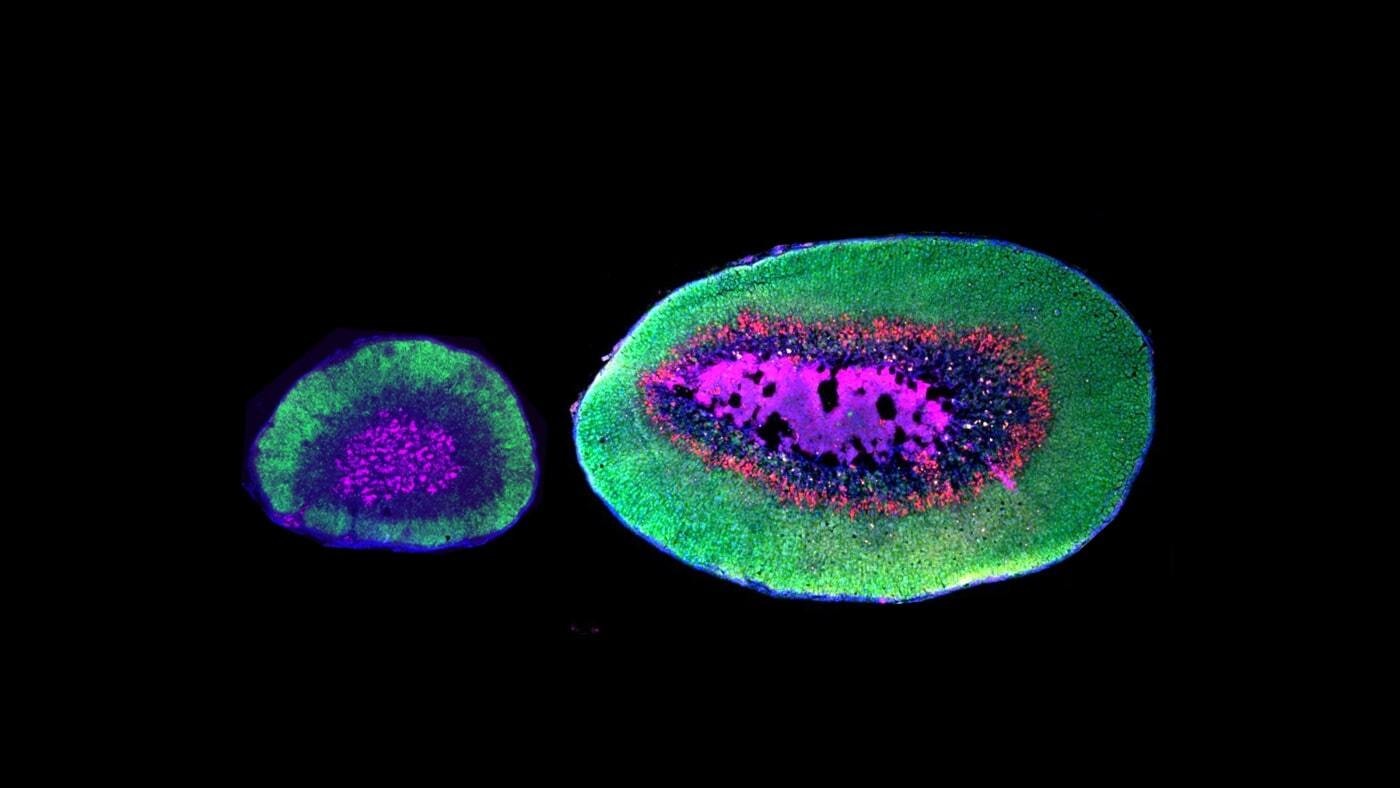
In the animal kingdom, there are far more mammals that are polyamorous than are monogamous. In fact, just three to five percent of mammals are monogamous, and researchers have long wondered what benefit monogamy provides these select mammals. But growing evidence shows these behaviors have a crucial biological basis — and researchers just got one step closer to understanding the underlying mechanisms driving this behavior.
Research has shown that monogamous animals are more likely to be involved parents. However, scientists have yet to pin down the biological mechanisms at play in both these behaviors. However, a new study by a team of neuroscientists and evolutionary biologists identified a novel cell found only in monogamous mice. Understanding how it works, could help reveal why monogamy exists in the mammal world — and why it makes this mouse species such excellent parents.
A novel parenting cell
The newly discovered cell was found in the adrenal glands of a species of monogamous mice known as oldfield mice. In mice, the adrenal gland contains three previously known layers of steroid-producing cells, called zonas. The researchers published their work today in the journal Nature.
But Andrés Bendesky, an assistant professor of ecology, evolution, and environmental biology at Columbia University’s Zuckerman Mind Brain Behavior Institute, and his team discovered a fourth zona only present in oldfield mice. The team dubbed the new cell type zona inaudita. “Inaudita” is Latin for “previously unheard of,” according to Bendesky, because such a cell hadn’t been observed in animals before.
Bendesky and his team also looked for this newly discovered cell in deer mice, a species of nonmonogamous mice, and couldn’t find it.

Giving promiscuous mice a parenting boost
Zona inaudita cells express the enzyme AKR1C18, which converts the steroid progesterone into a hormone called 20-alpha-hydroxyprogesterone (20α-OHP). It turns out 20α-OHP boosts nurturing parenting behavior. Bendesky and his team dosed both oldfield and deer mice with 20α-OHP. In the former, the team observed even greater parental care behavior, like grooming, huddling, and retrieving pups to the nest.
Even more intriguing, the dose of 20α-OHP also stimulated parenting behavior in the promiscuous deer mice. Before the hormone dose, none of these mice groomed or huddled their young. After the dose, 17 percent of them groomed their pups and sequestered them in the nest.
They also tested how 20α-OHP affects pair-bonding behaviors that characterize monogamy and promiscuity. They didn’t observe any of these behavioral changes in either oldfield or deer mice. However, “parenting behaviors in general are correlated with monogamous behaviors,” Bendesky says. This means that even if 20α-OHP doesn’t directly modulate mating behaviors, there’s a link between its production and monogamy by virtue of the way it affects parenting behaviors.
What about human parents?
The team also investigated the zona inaudita’s evolutionary genetic basis. They found that these cells only evolved in two kinds of mice — oldfield and beach — about 20,000 years ago, which is “the blink of an eye in evolutionary terms,” Bendesky says. He adds that this evolution may have come about over 20,000 generations if a mouse yields one litter per year.
Though this study exclusively looks at mice, Bendesky is curious about how these findings carry over to humans. As different as humans and mice are, mice possess 85 percent of our genes. They also have many of the same brain structures we do, which suggests that whatever structures are evident in mice could have a human analog.
Bendesky is optimistic that someone else who studies neonatology or birth-related hormones in humans will grasp this discovery. “Our finding hopefully will spark some interest,” he says. He envisions investigation into hormones that could modulate, for example, postpartum depression.
“We're still discovering novel behavioral effects for hormones we have,” he says. “They might be doing something very similar in humans.”







